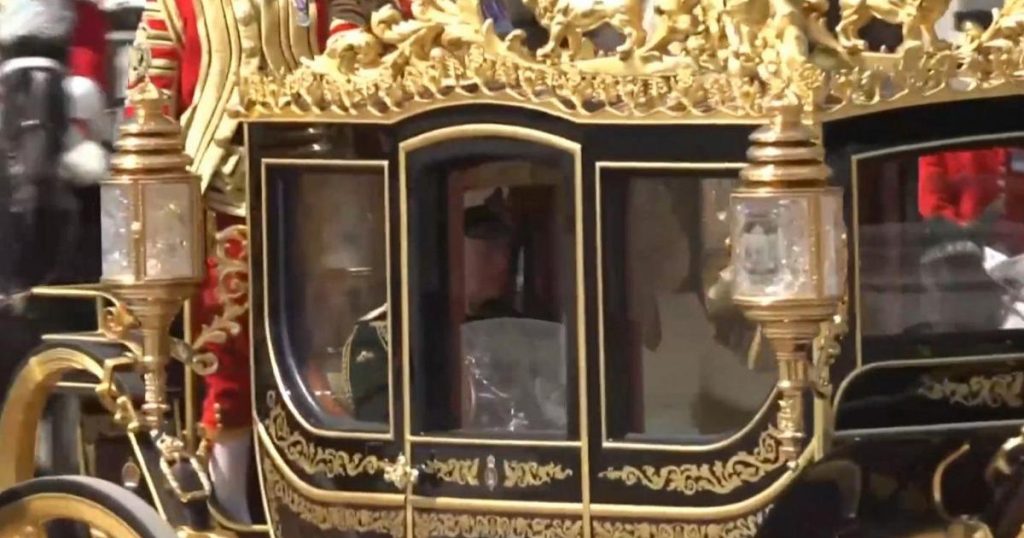King Carlo III and Queen Camilla leave Buckingham Palace in a carriage to attend the King’s Speech at Westminster, marking the inauguration of a new parliamentary session. This year, the event is significant as it coincides with the transfer of power to the Labour government led by Keir Starmer after 14 years of Tory rule. The 75-year-old monarch, who has recently returned to public duties following a cancer diagnosis in January, is accompanied by Queen Camilla during the centuries-old ceremony.
The procession is preceded by royal insignia, with King Carlo III and Queen Camilla making their way to Westminster amidst ceremonial pomp and tradition. The King’s Speech signifies the formal opening of Parliament and the beginning of a new legislative session. The event is steeped in history and symbolism, with rituals such as the closing of the doors on the monarch’s messenger by the elected House of Commons, showcasing its autonomy, followed by the transfer of MPs to the House of Lords.
The transition of power from the Conservative government to the Labour Party adds a layer of political significance to the King’s Speech this year. The shift in leadership after a long period of Tory rule reflects the changing political landscape in the country. As King Carlo III and Queen Camilla attend the ceremony, they signify the continuity of the monarchy in the face of changing governments and shifting political dynamics.
The presence of King Carlo III at the King’s Speech holds particular significance as he has recently resumed his public duties after a health scare earlier in the year. His return to official engagements demonstrates his commitment to fulfilling his role as monarch and participating in key national events. Queen Camilla’s support and presence by his side also underscore the unity and stability of the royal family during times of transition and change.
The King’s Speech is not only a ceremonial event but also sets the agenda for the new parliamentary session, outlining the government’s priorities and legislative plans. As the Labour government takes office, the speech delivered by King Carlo III reflects the policy agenda and vision for the country’s future under the new administration. The ceremonial aspects of the event, combined with its political significance, highlight the role of the monarchy in the governance of the nation.
Overall, the King’s Speech at Westminster marks a pivotal moment in the political and ceremonial calendar, signaling the beginning of a new parliamentary session under a Labour government. The presence of King Carlo III and Queen Camilla adds a sense of continuity and tradition to the event, highlighting the role of the monarchy in the governance of the country. As the political landscape evolves with the transfer of power, the King’s Speech remains a symbol of stability and continuity in the face of change.


